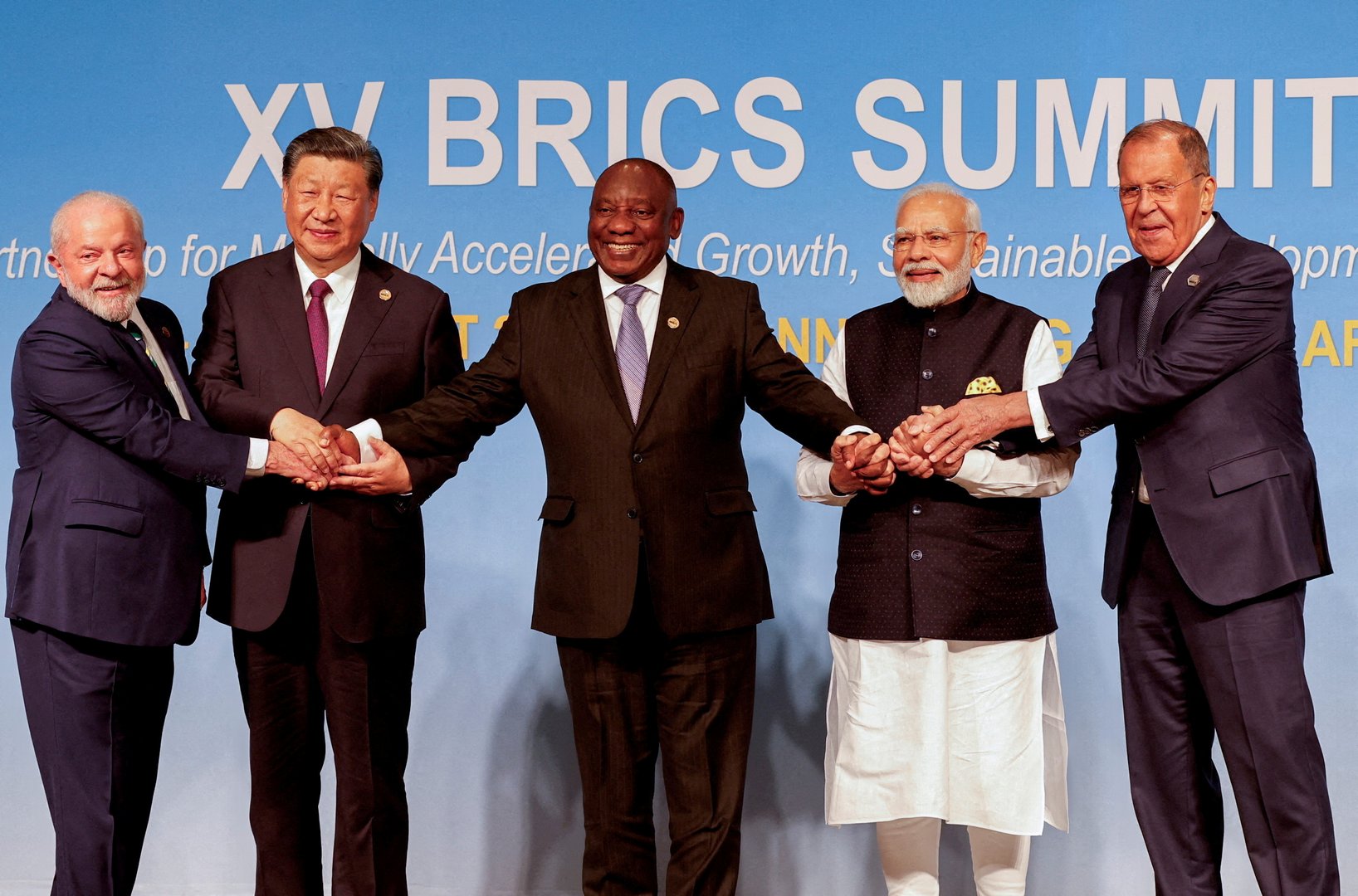The geopolitical tensions in recent years have taken a toll on the climate of cooperation, especially between major countries. The global economy is rather sluggish, financing conditions have worsened, while at the same time a climate of protectionism in trade relations seems to have become entrenched.
In this context, the intention of the relatively loose alliance of countries entitled BRICS, to invite six new countries to become members, which was announced at the alliance’s recent summit in Johannesburg, is not surprising. With the addition of Argentina, Egypt, Iran, UAE, Saudi Arabia and Ethiopia, the existing members (Brazil, Russia, India, China and South Africa) aspire to create a major political and economic coalition to rival the G7 (which includes the major Western countries) and promote their own interests, in opposition to the supremacy of the US.
In terms of numbers, if the envisioned expansion of BRICS materialises, it is expected to boost its share of the global economy to 37 per cent. Beyond that, the following points may be noted.
First, although the envisaged enlargement will lead to a strengthening of the role of BRICS, the highly ambitious plan of creating a common currency, to be used in transactions between its member countries, has not been discussed at a practical level. The intended challenge to the hegemony of the US dollar, which is the world’s dominant currency with a share of almost 60 per cent of global reserves and more than 70 per cent of global trade, is an extremely difficult and complex undertaking, which presupposes, among other actions, the substantial convergences of economies, the creation of an exchange rate stabilisation mechanism, policy coordination, as well as the development of supporting executive and administrative structures.
Second, the intended creation of financial organisations, using the model of the IMF and the World Bank, is not expected to deliver the expected benefits.
Third, BRICS members have diverse economic characteristics and interests, which limit the alliance’s geopolitical footprint. As an example, the strategic rivalry between the largest members, China, a rising economic superpower with huge foreign exchange reserves, and India may be mentioned. Furthermore, Iran, a country with remarkable natural wealth, is protecting its own self-interest by aspiring to a way out of its political and economic isolation. Egypt, which has suffered from disinvestment and has plunged into crisis due to high fuel and grain prices, is seeking, by joining BRICS, to attract new allies. Saudi Arabia and the UAE aim to maintain friendly relations with the US while, at the same time, strengthening relations with the BRICS members. Saudi Arabia’s oil reserves make it an important BRICS partner, but this is also causing cracks in its relations with the US.
Fourth, the involvement of Russia, which is at war with Ukraine and at odds with most of the Western countries and their allies, creates challenges.
In conclusion, the expansion of BRICS is part of a more general effort to promote national interests on a global scale, which intensifies the phenomenon of protectionism, by a number of countries that aspire to limit the economic and geopolitical influence of the traditional Western front, and especially the US. This effort reflects a partial shift of global economic weight to Asia, but it faces enormous challenges and its success is uncertain.
Andreas Charalambous and Omiros Pissarides are economists








Click here to change your cookie preferences